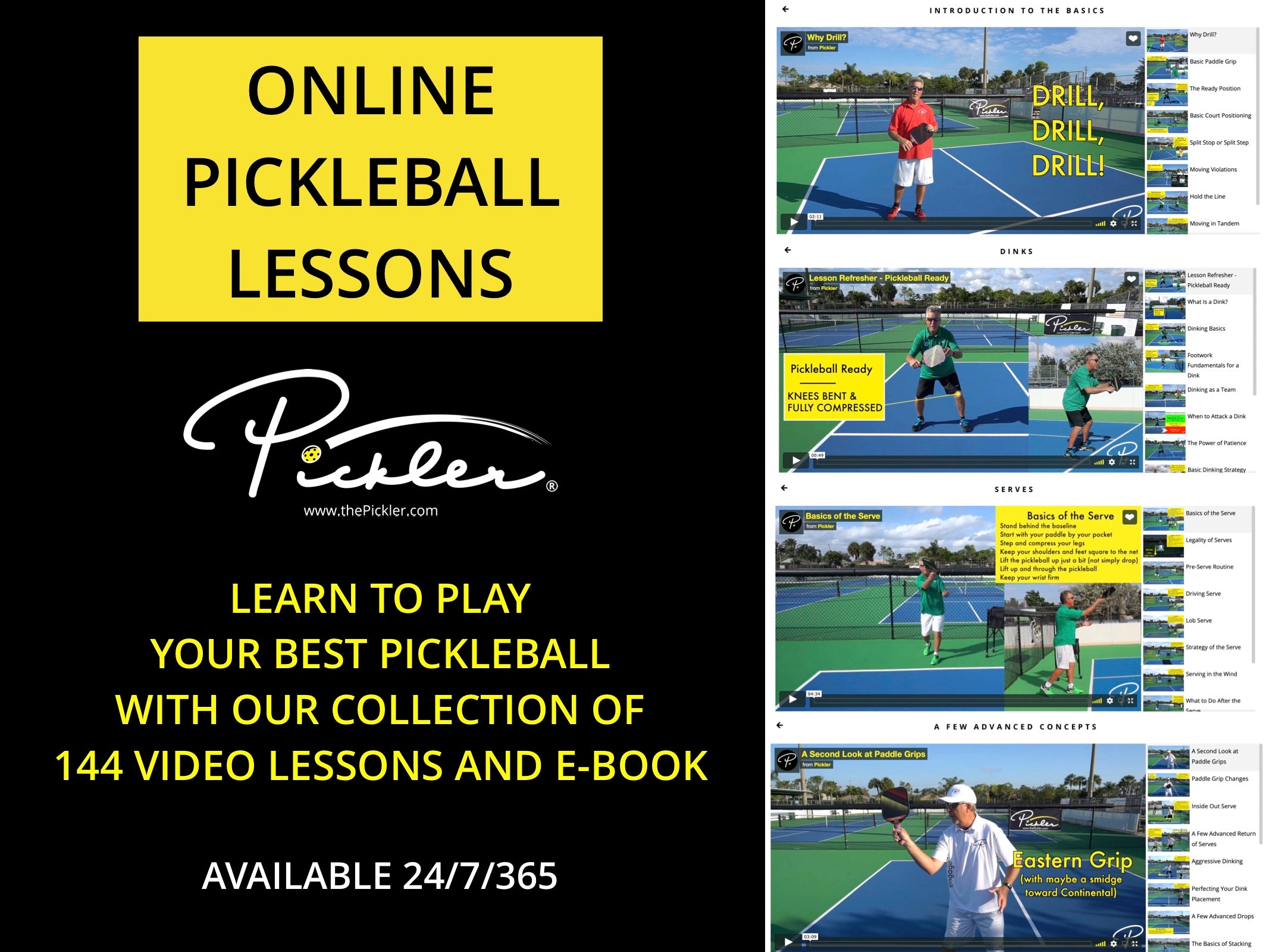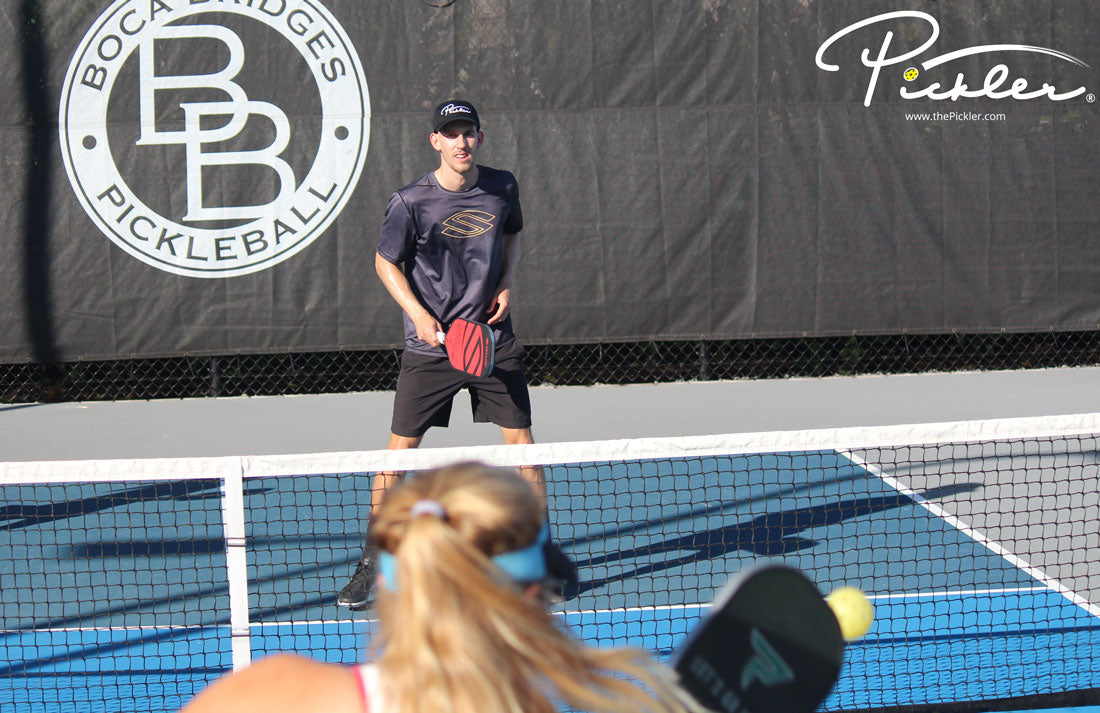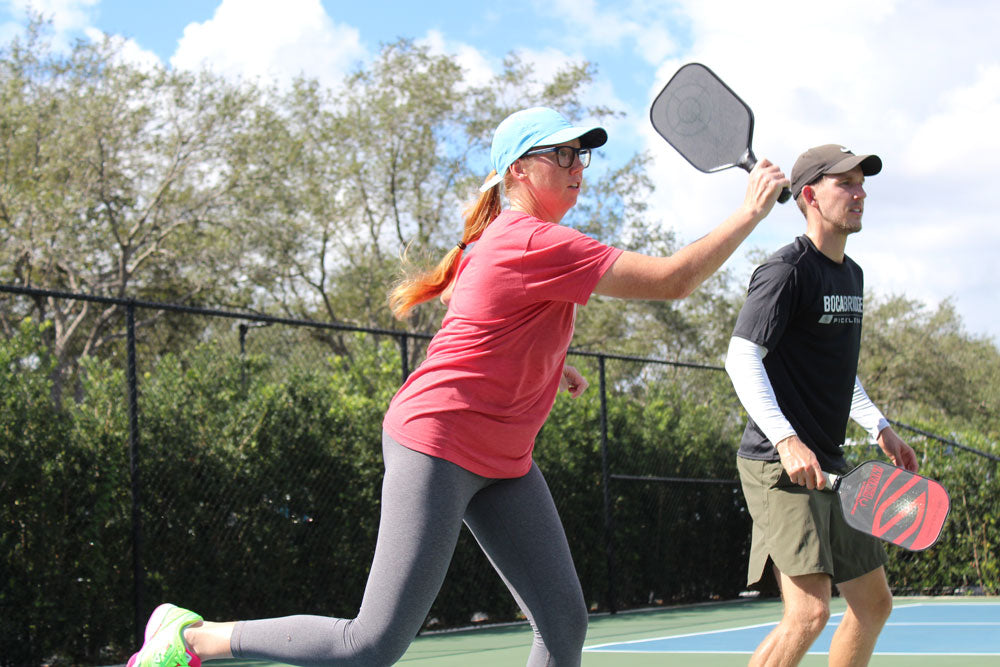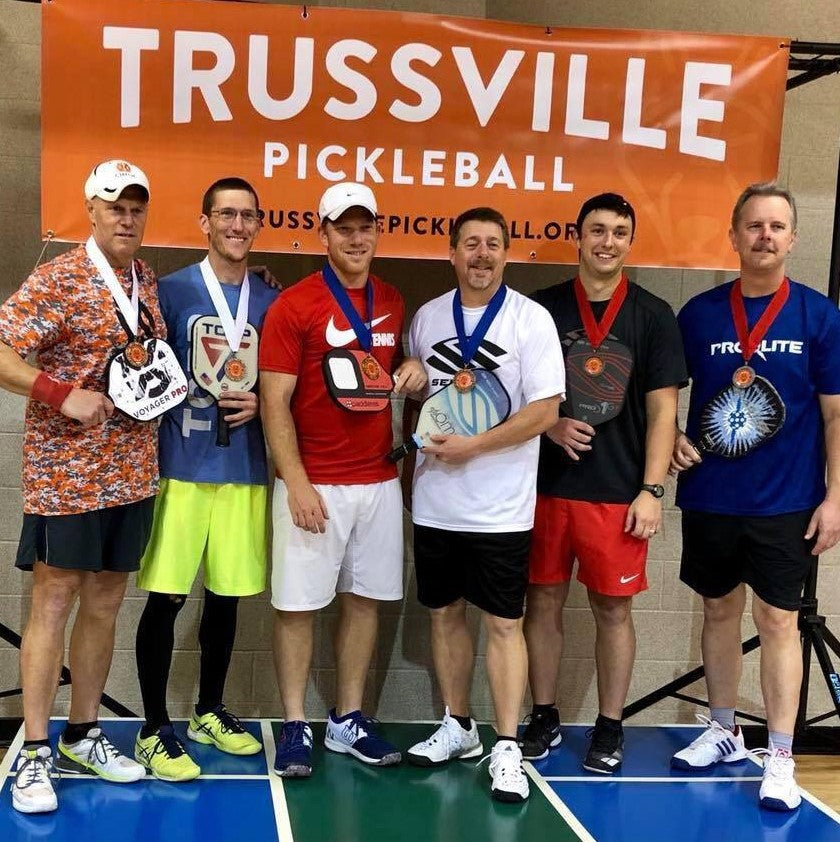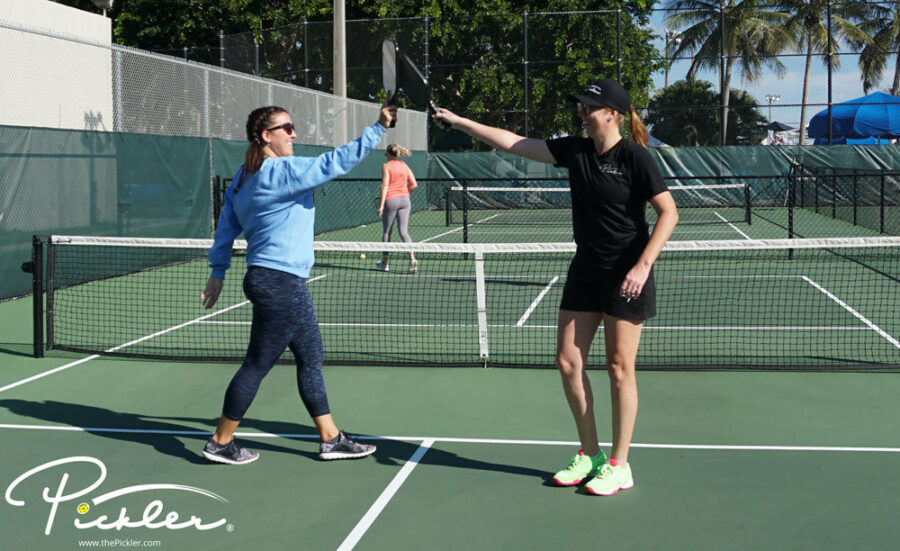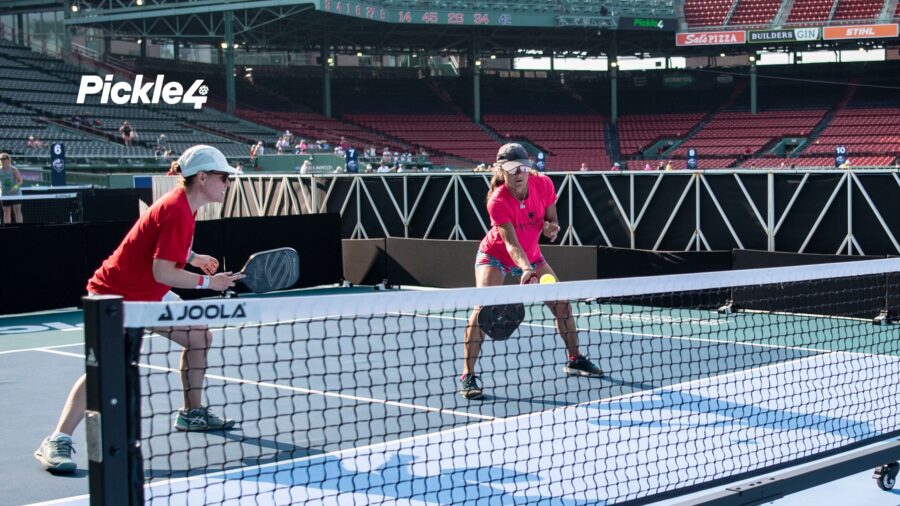Pickleball rallies often play out at the Non-Volley Zone line, in fast exchanges where the pickleball flies back and forth over the net in what is called a hands battle. These quick exchanges mean that you need to make split-second decisions and have lightning-fast reactions in order to win more points at the Kitchen line.
Given the lack of time to react to a fast-flying pickleball when at the Non-Volley Zone line on a pickleball court, it is important to be as efficient as possible in your movements. One way to be efficient is to start from the best ready position, so that you eliminate any wasted movement from your starting point to your point of contact with the pickleball. The general goal is to have the greatest coverage of shots (that are staying in the pickleball court) in the least amount of time possible.
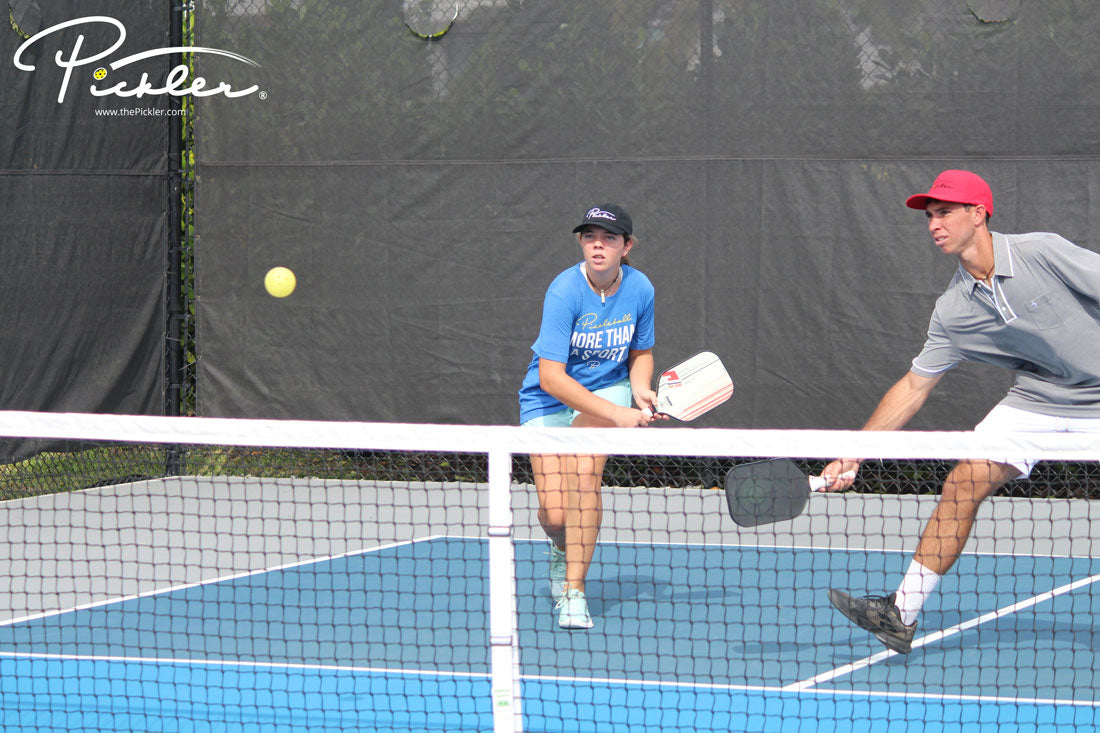
As a result, in this pickleball blog we will breakdown the best position for your pickleball paddle, so you can hold your pickleball paddle like a pro and win more hands battles on the pickleball court.
The Best Paddle Angle for Your Ready Position on the Pickleball Court
Pickleball shots can come from all directions on the pickleball court. This includes both your forehand and backhand sides of your body. So, you want a paddle angle that permits you to attack and defend shots on both your forehand and backhand sides of your body.
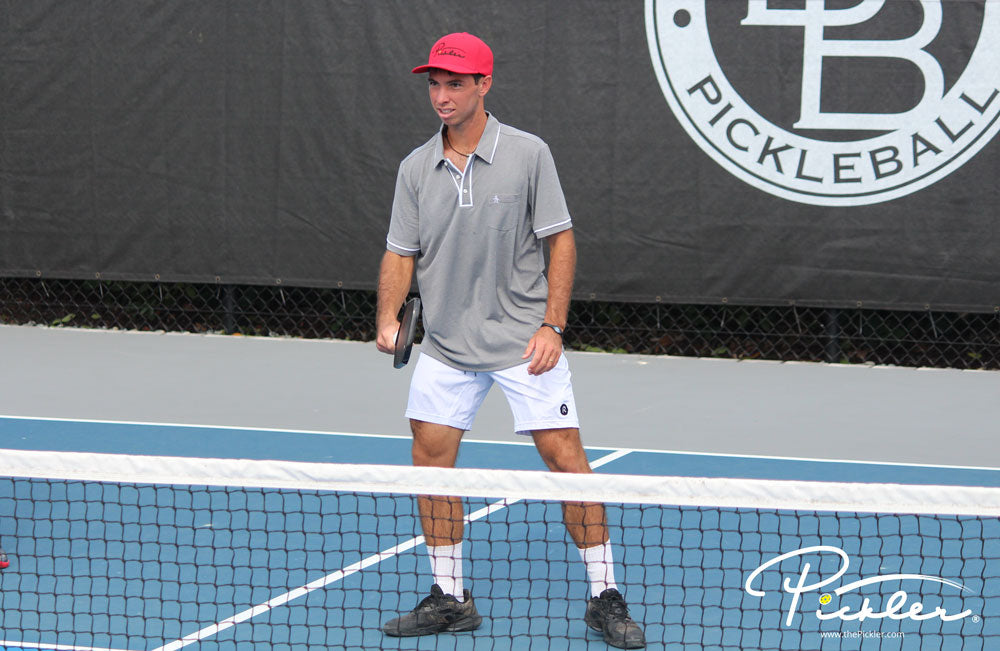
To cover both sides of your body, you will want your paddle face to be at 10 or 11 o’clock if you imagine that you are standing on a clock face (or 2 or 1 o’clock position if you are a lefty). Your opponent should be able to read the face of your paddle, as you should be in a semi-backhand position. The reason for this paddle positioning is that, as you get closer to the net and your opponents, you will have less time to react to the pickleball. As a result, this semi-backhand position will give you faster reaction time for shots, while also still giving you a chance to flip your paddle and hit a forehand. However, try not to over-rotate to the 9 o’clock position (or 3 o’clock position if you are a lefty) because you will be too committed to only backhands. Stay in the 10 or 11 o’clock position (or 2 or 1 o’clock position if you are a lefty) with your paddle face.
The Best Paddle Height for Your Ready Position on the Pickleball Court
Another component of your pickleball paddle ready position that is not talked about enough is the height that you hold your paddle. There is a current trend amongst pro pickleball players to drop the paddle height to about your belly button (as opposed to the “traditional” paddle height of about chest level).
If you are holding your paddle at chest height, anything above your paddle head will likely be going out of bounds. As a result, there is no need to move your paddle upward from this ready position because you do not need to hit your opponents’ shots that are traveling out of bounds. But, you would have to move your paddle downward to cover any shots from your opponents (which takes more time). Since you generally have to move your paddle down, but not up, you are starting from an inopportune paddle ready position and it may take you longer to attack or defend shots below your chest height.
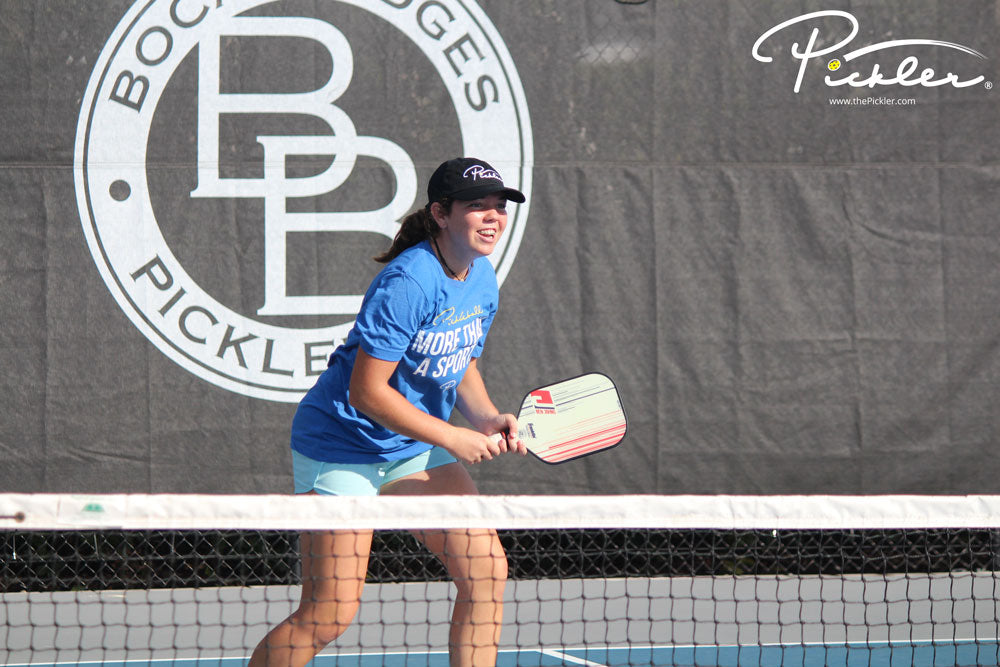
Contrast chest-height for the paddle ready position with a bit lower paddle position—around your belly button. At this point, you have equal distance to travel to go up for a high shot and go down for a low shot. As a result, you can have the greatest coverage of shots (that are staying in the pickleball court) in the least amount of time possible.
Adjustments Are Key on the Pickleball Court
It is important to note that your pickleball paddle ready position may change based on a number of factors, including your opponents (and their tendencies), your own strengths and weaknesses, where you are on the pickleball court, and the shot that has been played. As a result, while a 10 or 11 o’clock paddle angle and a paddle height around your belly button may be a good general rule, there are always exceptions. For instance, if your opponents are consistently attacking your shoulders (while still keeping the pickleball in the court), then you may need a higher paddle position to counter their high attacks. Or, if your opponents have a tendency to attack your “chicken wing” area with a low-sitting pickleball, then you may want to try to raise your pickleball paddle to hit a Scorpion shot. It is important to make adjustments to your game and strategy on the pickleball court in order to evolve and keep an edge over your opponents.
WANT MORE PICKLEBALL TIPS AND STRATEGIES?
Want to be more aggressive on the pickleball court? Learn how to play more aggressively now.
Plus, if you want more pickleball tips and strategies on every aspect of your pickleball game, check out Pickler’s online video lesson collection called My Pro Pickleball Coach. My Pro Pickleball Coach is a fraction of the price of one clinic or even one lesson, and features over 140 video lessons (over 7 hours of instruction!), as well as a corresponding e-book. These online video lessons are available on demand 24/7 and breakdown every aspect of the sport of pickleball, including pickleball drills, strategy, and advanced concepts, so you will play your best pickleball.
